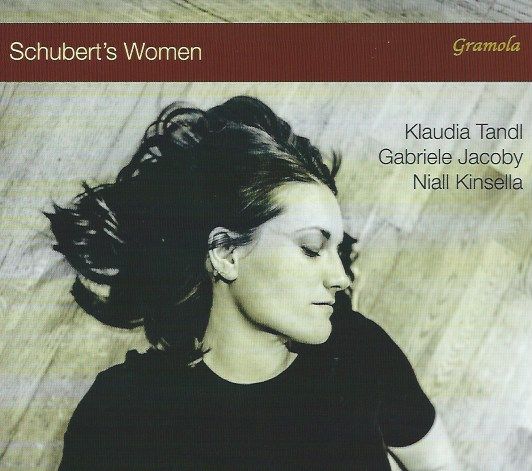Schubert's Women: a Lieder recital with a difference
Schubert's Women is at once a self-contained offering and also an invitation to seek out more

“Schubert's Women” is far more than just another Schubert song recital: the focus is on what pianist Niall Kinsella calls “various aspects of the female character as understood by Schubert,” an enterprise that resulted from the meeting of Gabriele Jacoby, Klaudia Tandl and Niall Kinsella at a Lieder course in Baden-bei-Wien in 2017.
So it is that we have different manifestations of the feminine in Schubert's song output: mother and daughter (the spoken Das Echo by Ignaz Franz Castelli), playfulness, disappointment, the female character of Mignon and the female supernatural water sprite in Der Fischer, plus the greatest aspect of the feminine of all: the 'Ewig-Weibliche' (Eternal Feminine) that crowns Goethe's Faust. There's even a song of mourning for hoped-for, but unrealised, love, Du liebst mich nicht, D 756; this reaches its natural extension in Des Mädchens Klage, D 191 (Schiller) in which the protagonist, a bereft girl, asks for Death to take her.
When it comes to revelations as to the strength of Schubert's music in his lesser-known songs, we find the revelatory Luisens Antwort, D 300, a song of heart-wrenching pain of the protagonist Luisa for her departed beloved, Wilhelm. It is a brief song, but one of tremendous depth, and Tandl and Kinsella give it its full due. Let's hear that song about a water spirit, Der Fischer, D 225, delivered with charm from both Tandl and her excellent pianist Niall Kinsella.
(On the disc Der Fischer sits next to the famous Heidenröslein - and how lovely to hear that poem read, too).
It is nice to be able to give some background to Tandl's career, too, in this video of her performances of three songs at the International Song Commpetition in Stuttgart (2014) where, with another fine young artist, the pianist Stefan Birnhuber. She sings two Schubert/Goethe songs (Ganymed and Rastlose Liebe) and Wolf's tremendous Um Mitternacht:
I note this is not the only video with Tandl pairing Schubert and Wolf. She sings Wolf so well (and this elusive, unpredictable composer is notoriously difficult to interpret well) that one hankers after a follow-up disc of Wolf songs ... in the meantime, we have this thought-provoking offering.
Schiller it is that provides the text for Thekla, eine Geisterstimme, prefaratory to Schubert’s own Thekla, D 595. A song with impeccable, archetypical Romantic imagery wrought with utmost poignancy (nightingales that only live as long as they can love), it requires rock-steady rhythmic control to persuade the listener of the inevitability of its tread, something fully in evidence here. How clear the contrast with the more familiar Der junge Nonne, D 828. We can hear an earlier Tandl Nonne in this video of the awardee concert at that same competition, full 15 minutes (Die junge Nonne is the penultimate song, prior to which we hear Nachtviolen, D 752, a highly dramatic Auflösung, D 807, and Wolf's Heut Nacht erhob ich mich um Mitternacht from the Italienisches Liederbuch; the video ends with Wolf's Gesang Weylas. Die junge Nonne begins at 7"32):
Schubert's Women is at once a self-contained offering and also an invitation to seek out more, to explore the relationship of text and music, or to seek illumination on the aspects of the feminie in Romantic poetry and song. And while the excellence of this performances makes the disc self-recommendable, it is this exploratory spirit that marks it as truly special.
At the time of writing, the Amazon link below allows a whopping £5 off the list price:
